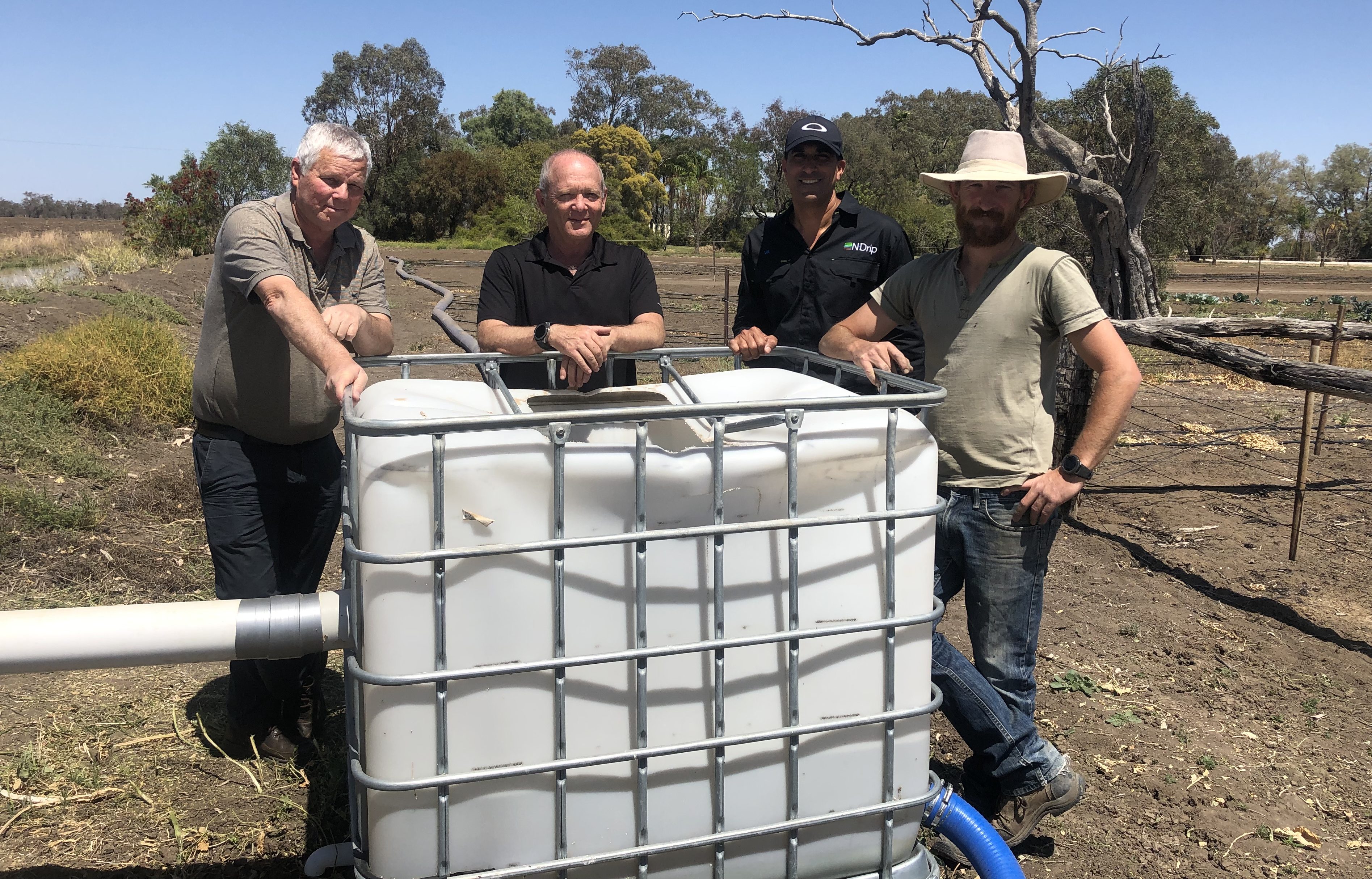Israel’s former water commissioner, Professor Uri Shani is well-known for mastering the art of growing a crop with little water.
“Israel is a country that has always suffered from a lack of water that’s why so much of the irrigation technology and water management technology comes from Israel because we’ve always had a water crisis in Israel,” said Prof. Shani’s colleague and general manager for N-Drip Australia Udi David Stern.
Prof. Shani invented the N-Drip micro irrigation system that is powered by the force of gravity.
Mr David Stern said it is an affordable alternative to flood irrigation because it’s efficient, precise, maximises yields, reduces the amount of water used and lowers overall costs.
Mr David Stern and Prof. Shani recently visited the North West region and met with local irrigators including Jeff Palmer (pictured at his property near Wee Waa) who is testing out the drip irrigation system.
“N-Drip looks at the cotton industry as one of our major industries,” Mr David Stern said.
“We also work with maize, sugarcane, melons and potatoes but in this area it’s mainly cotton.”
The N-Drip system has been described as ‘ground-breaking’ because it is more affordable than other drip systems mainly due to the fact it does not need a pump or a source of energy, just a source of water at the beginning of a field with a slope.
It is also designed to work without filters.
Mr David Stern said previously it has been very expensive for irrigators to convert from flood to drip irrigation but N-Drip is designed to “close that gap between flood and drip”.
“You will see a return on investment when you take into account the savings in water, in energy, in fertiliser and increase in yield.”
Mr David Stern said the Israeli team is very interested in working closely with Australian farmers to adapt and change the system.
“Professor Shani is here on a visit to understand the challenges that N-Drip Australia is facing within different areas and to better understand the farming practices in this area.
“Because any new invention that goes to the research and development will go through him.
“Last year when we visited the area, one of the biggest challenges we understood in the cotton industry is that the row length is on average five to 600 metres but our tape was only designed for up to 300.
“So the consequences of the last visit was the enlargement or the creation of a different tape that can take us to the 600 metre length.”
Wee Waa cotton farmer Jeff Palmer said there were a few factors that made the system an appealing option for him.
“The micro management of your water, you can really get right down to the nitty gritty of what you’re using, the automation of it as well – you get full automation and obviously the water savings behind it, the efficiency,” said Mr Palmer.
“You’re delivering the amounts of water you want to deliver to each plant almost individually.”
Mr Palmer said he was introduced to the N-Drip system last year and used it to grow cotton, and he will stay with the system again this season.
“We had some challenges but at the end of the day the cotton performed just to the amount of water it received, we’re learning with it as we go.
“I’ve kept going with it doing some small winter vegies to see the longevity in it and then we’re getting ready to do another year with cotton.
“I don’t really think there would be any other choice, it works for us because we’re small scale, we’re not large cotton farmers and water is the main thing that we need so if it takes a bit to save a bit of water – well then that’s our main goal.
“If these conditions continue into next year and we’re looking at more cutbacks, there might not be any other choice, so in a way it’s sort of preparing myself a bit for maybe the inevitable.”
To order photos from this page click here










